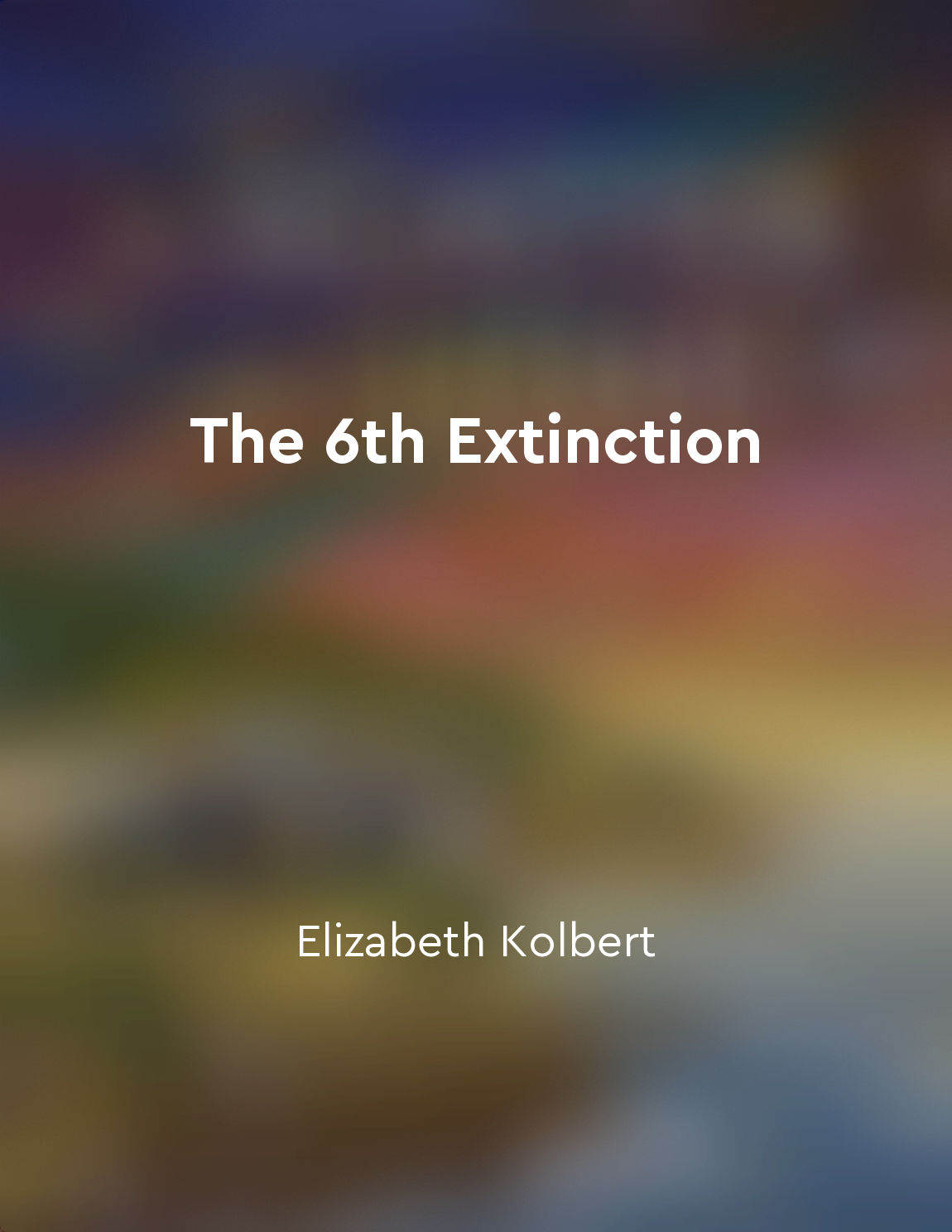Death is a natural part of life from "summary" of Life Everlasting by Bernd Heinrich
Bernd Heinrich delves into the profound and often unsettling concept of death as an integral component of the cycle of life. He explores the interconnectedness of all living beings, emphasizing that death is not an aberration or anomaly, but a fundamental and inescapable aspect of existence. Heinrich argues that death serves as a crucial mechanism for the perpetuation of life, as it allows for the recycling of essential nutrients and the creation of space for new growth and development. Through his meticulous observations of the natural world, Heinrich illustrates how death plays a vital role in maintaining the delicate balance of ecosystems. He highlights the intricate web of relationships between predator and prey, emphasizing the necessity of death for the survival of various species. Heinrich's vivid descriptions of life and death in the wild serve to underscore the inevitability and universality of mortality, portraying it as a natural and essential phenomenon rather than a source of fear or despair. Furthermore, Heinrich explores the concept of death from a physiological and evolutionary perspective, shedding light on the adaptive significance of mortality in the broader context of biological life. He discusses the role of death in driving genetic diversity and promoting the evolution of species over time, emphasizing how natural selection operates to weed out unfit individuals and ensure the survival of the fittest. In this way, Heinrich posits death as a mechanism for enhancing the overall resilience and adaptability of living organisms in the face of changing environmental conditions.- Heinrich's reflections on death serve to challenge conventional notions of mortality and invite readers to reconsider their perceptions of life and its inherent impermanence. By embracing death as an intrinsic and essential part of the natural world, Heinrich encourages us to confront our fears and anxieties surrounding the end of life, and instead, to view it as a transformative and meaningful process that enriches the tapestry of existence. Through his eloquent and thought-provoking prose, Heinrich inspires readers to contemplate the profound interconnectedness of all living beings and to appreciate the beauty and complexity of life in all its fleeting and transient forms.
Similar Posts
Individuality and uniqueness contribute to life's meaning
Individuality and uniqueness are essential components that give life its depth and richness. Each individual brings a distinct ...

Overfishing is decimating marine populations
The oceans are vast and seemingly inexhaustible, but human activities have taken a toll on marine populations. Overfishing, the...
Offer gratitude for the blessings of life
Let me not pray to be sheltered from dangers
but to be fearless in facing them.
Let me not beg for the stilling of my pain
but ...
Man is a complex being
Man is not a simple being. His nature is intricate and mysterious. His body is composed of numerous cells, tissues, and organs ...
We must confront our mortality to truly live authentically
In order to really live an authentic life, we must first come to terms with the fact that we are mortal beings. This may seem l...
Death can be peaceful and dignified with proper care
The idea that death can be peaceful and dignified with proper care is a central theme throughout 'How We Die'. Nuland emphasize...
Flexibility is a strength
Flexibility, in its various forms, is indeed a strength that one should cultivate and embrace. As human beings, we are often fa...
Nature has its own way of dealing with mortality
In the natural world, mortality is an inevitable part of life. Every living organism, from the smallest insect to the largest m...

